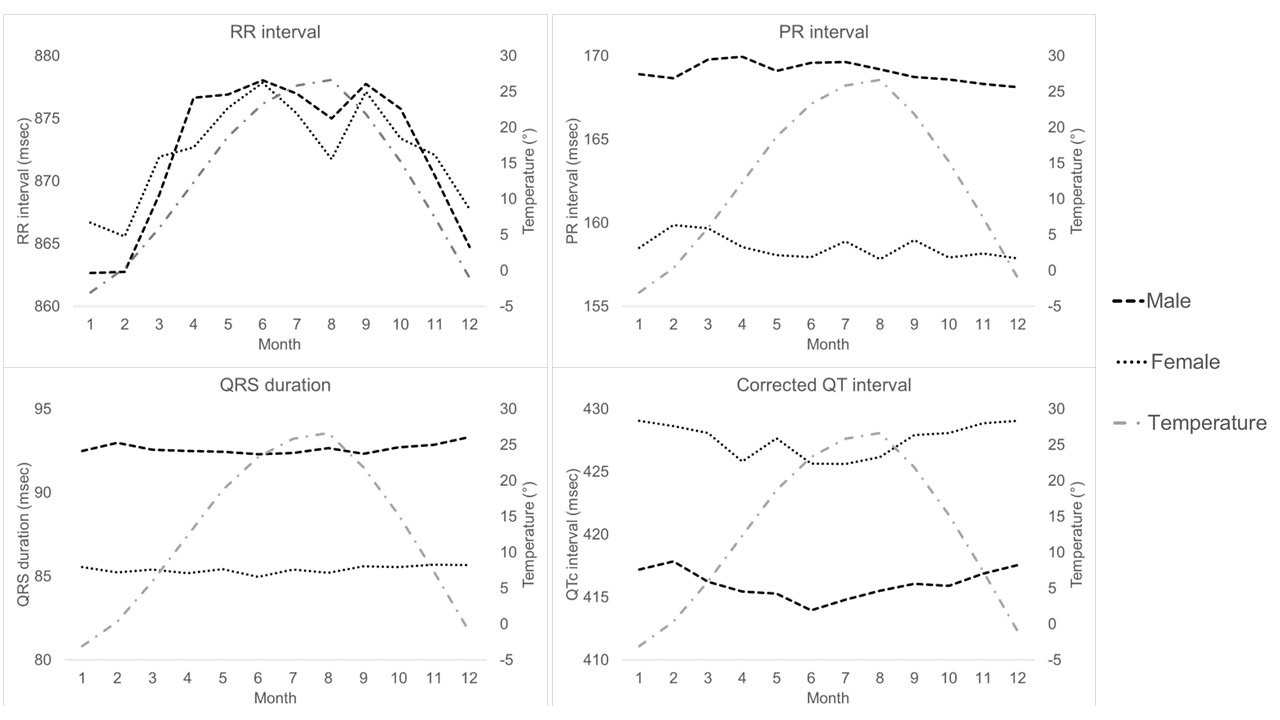Most studies report there is a ‘winter peaks’ in cardiovascular-related events. It is known that temperature affects the velocity of electrical conduction in the heart. This study was aimed to investigate the change of intervals in an electrocardiogram (RR, PR, QTc interval and QRS duration) according to the season.
We analyzed 121,286 electrocardiograms from 60 to less than 100 beats per minute among people performed for health surveillance at Seoul National University Bundang Hospital for the past 10 years (2009-2018). The mean of each interval including QTc interval using Bazzett's formula, were compared according to the month and sex. The mean temperatures in Seoul during the above period was obtained from the Korea Meteorological Administration database.
During the 10-year period during which ECGs were obtained, Seoul, located in the northern hemisphere, had the lowest average temperature in January and the highest in August. The RR interval changed similarly to the change of temperature, so heart rate (obtained by dividing 60000 by the RR interval) was the fastest in January and shortest in August. The PR interval and QRS duration were consistently observed even with temperature changes and maintained constant levels throughout the four seasons. The QTc interval showed an inverse correlation with temperature, being longest in January and shortest in August.
In winter, when the temperature was low, the heart rate was fast and the QTc interval was long, and in the summer when the temperature was high, the heart rate was slow and the QTc interval was short. This may be one of the reasons for the high frequency of cardiovascular diseases in winter.

